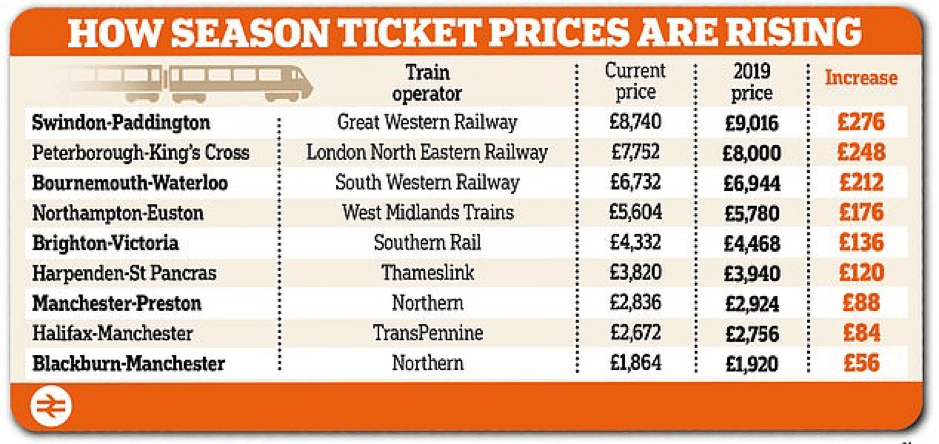By Rebecca Wallis
Recently, we have been told that rail fares will rise again in the new year. Year after year, the prices increase and commuters have to grin and bear it. Ticket prices have risen by a huge 37% in the last decade with an average annual increase of 3.2%. We are constantly being told that the fares go directly back into the rail industry, but after a year of delays, constant cancellations, overcrowded and scheduling chaos, when will we actually see this money being put to good use?
Paul Plummer, the chief executive of the Rail Delivery Group, who represent Network Rail and other rail operators including Devon and Cornwall Railway and London Underground limited, said ‘Nobody wants to pay more to travel, especially those who experienced significant disruption earlier this year. Money from fares is underpinning the improvements to the railway that passengers want and which ultimately help boost the wider economy. That means more seats, extra services and better connections right across the country’.

But from what we have heard and what many have experienced, can we really believe any of this? Rail operators state that 98p from every £1 spent on rail fares goes into improving and running the railway network, with plans to bring in 7000 new carriages, in turn being able to support 6,400 extra services a week by 2021.
Yet we are always hearing stories of overcrowded services, trains being suddenly delayed or simply cancelled all together and all year commuters have been left having to put with scheduling constantly changing. And many people have had enough of it now. With the amount of money people are having to spend on tickets, with some season tickets for the main lines in and out of London costing over £9000 a year, commuters are left wondering where on Earth all of the money is going.
The chief executive of the independent watchdog Transport Focus has said ‘Many passengers, still reeling from summer timetable chaos and frustrated by ‘autumn’ disruption, won’t believe fares are going up again! Until day-to-day reliability returns – with fewer significant delays and cancellations – passenger trust won’t begin to recover. Passengers now pour over £10bn a year into the rail industry alongside significant government investment, so the rail industry cannot be short of funding. When will this translate into a more reliable railway and better value for money for passengers?’

From personal experience of travelling in and out of the west country on some of the country’s main lines, I have seen the worst of the rail industry. I have seen the overcrowding of Waterloo Station in the morning rush hour, I have sat on the floor in the space by the toilets between Exeter St David’s and Bristol Temple Meads because there weren’t enough carriages on the service and I have seen a train from Exeter to London be reduced to standing room only less than half way through the 3-and-a-half-hour journey.
I have also seen that all of the work that has been going on around the rail industry in the capital, yet is it really getting us anywhere?
Across Europe, rail travel is much cheaper, and it would appear that the journeys are also much smoother. So why are commuters in the UK being charged so much for a service with so many problems?
For example, passengers commuting between Velletri and Rome (a 23 mile journey) pay £442 a year for a season ticket, whilst travellers commuting the same distance between Wokingham and London Waterloo face having to pay an eye watering £3,248 a year. A similar amount in Germany would purchase a travel card allowing travel across the entire rail network.

Twitter account ‘Learn On The Train’ is run by a Brighton to London season travel ticket holder, paying £4,332 a year. This commuter has kept a record of every journey they have taken this year. 1,472 journeys so far, and only 479 of them has run smoothly on time, and has not had a single journey on time since 28thSeptember. This only goes to prove that something drastic needs to be done to improve the rail network in this country.
